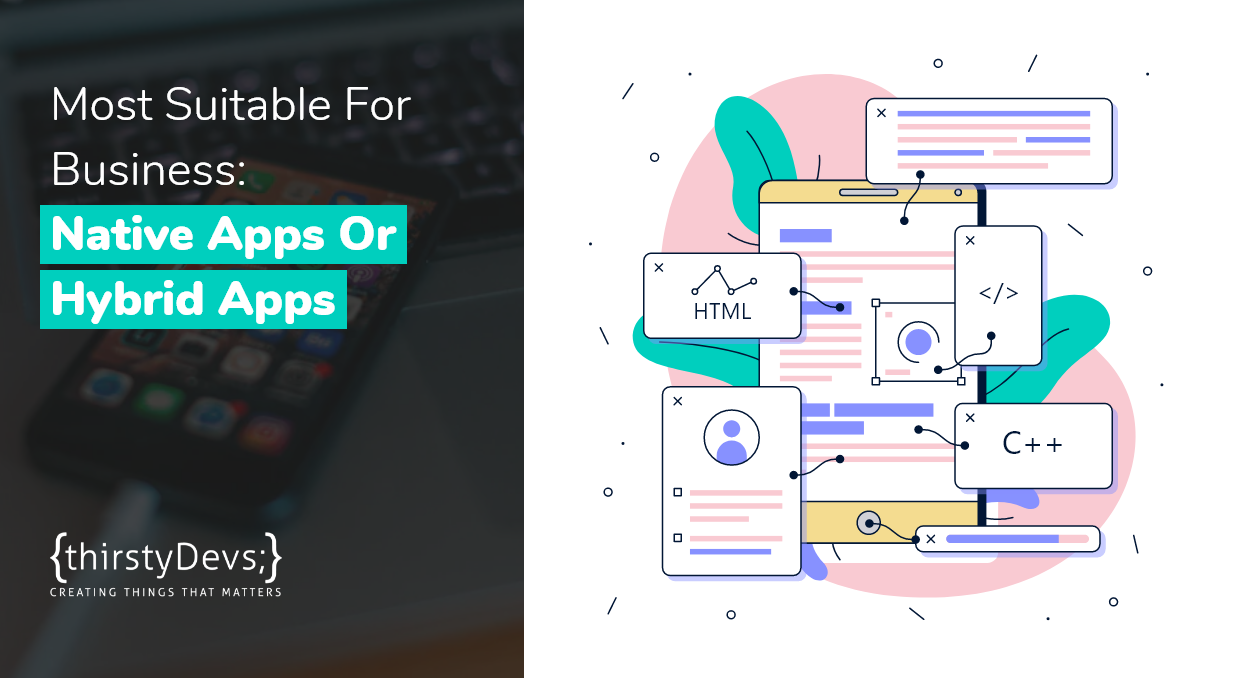How to Choose Between Native vs. Hybrid Mobile Apps for Your Business is a crucial decision for entrepreneurs looking to enhance their digital presence. With the rapidly changing technology landscape, businesses must evaluate the benefits and drawbacks of native and hybrid applications. This choice can significantly impact user experience, development time, and overall functionality, making it essential to understand what each option offers.
Native apps are built specifically for a platform, providing optimized performance and access to device features. In contrast, hybrid apps combine elements of both native and web applications, offering more flexibility and a quicker development process. With various factors to consider, such as budget, target audience, and long-term scalability, making an informed choice is critical for the success of your business.
In the ever-evolving landscape of technology, the rise of artificial intelligence (AI) has sparked an unprecedented transformation across various sectors. With its ability to process vast amounts of data and identify patterns, AI is revolutionizing how businesses operate, enhancing efficiencies, and reshaping customer experiences. This article delves into the multifaceted impact of AI on modern society, exploring both its advantages and potential challenges.AI has become a game-changer in industries such as healthcare, finance, and transportation.
In healthcare, for instance, AI algorithms are now capable of analyzing medical images with remarkable accuracy, assisting radiologists in detecting diseases like cancer at earlier stages. This capability not only speeds up the diagnostic process but also increases the likelihood of successful treatment outcomes. Furthermore, AI-driven predictive analytics enables healthcare providers to foresee patient needs, allowing for more personalized care and optimized resource allocation.In the financial sector, AI applications are redefining how we approach banking and investment.
Robo-advisors, powered by sophisticated algorithms, offer personalized financial advice, making investment strategies more accessible to the average consumer. Additionally, AI plays a crucial role in fraud detection, analyzing transaction patterns to identify anomalies that may indicate illicit activities. By employing machine learning techniques, financial institutions can enhance their security protocols, ultimately protecting clients’ assets and building trust.Transportation is another domain where AI is making significant strides.
The development of autonomous vehicles is perhaps the most talked-about advancement within this sector. Companies like Tesla and Waymo are at the forefront, utilizing AI to develop self-driving cars that promise to reduce traffic accidents and alleviate congestion in urban areas. Furthermore, AI-driven logistics management systems optimize supply chain operations, helping businesses reduce costs and improve delivery times.While the benefits of AI are undeniable, it is essential to acknowledge the challenges that accompany its rapid adoption.
One significant concern is the potential for job displacement. As AI systems become more capable, there is a fear that many traditional jobs may be rendered obsolete. This leads to a pressing need for reskilling and upskilling initiatives to equip the workforce with the necessary skills to thrive in an AI-centric job market. Policymakers, educational institutions, and businesses must collaborate to create pathways for individuals to transition into new roles that AI cannot easily replicate.Another challenge lies in ethical considerations surrounding AI deployment.
Issues such as data privacy, algorithmic bias, and accountability must be addressed to ensure that AI technologies are developed and implemented responsibly. For example, biased algorithms can perpetuate discrimination in hiring practices or law enforcement, leading to adverse societal impacts. To mitigate these risks, stakeholders must prioritize transparency and fairness in the design and deployment of AI systems.Moreover, the environmental impact of AI technology cannot be overlooked.

The energy consumption associated with training complex AI models has raised questions about sustainability. Data centers that host these models require substantial amounts of electricity, contributing to carbon emissions. As organizations increasingly rely on AI, finding ways to minimize its environmental footprint will be critical.The future of AI holds immense potential, but it also demands thoughtful consideration of its implications.
As technology continues to advance, fostering an inclusive dialogue involving technologists, ethicists, and the wider public will be vital. This discourse will help shape policies that govern AI usage, ensuring that the benefits are distributed equitably across society.In education, AI is poised to enhance learning experiences through personalized tutoring systems and adaptive learning platforms. These technologies can analyze students’ strengths and weaknesses, tailoring educational content to meet individual needs.
Furthermore, AI can assist educators in administrative tasks, allowing them to focus more on teaching and engaging with students.The entertainment industry is also experiencing a significant transformation thanks to AI. Streaming platforms use AI algorithms to analyze viewing habits and recommend content tailored to users’ preferences, enhancing the overall user experience. Additionally, AI is being employed in the production of films and music, enabling creators to experiment with new styles and ideas.As AI continues to permeate various aspects of our lives, public perception will play a crucial role in its acceptance.
Open discussions about AI’s capabilities and limitations can demystify the technology, fostering a more informed society. Educational initiatives aimed at increasing AI literacy will empower individuals to navigate a future where AI is an integral part of daily life.In conclusion, the impact of artificial intelligence on society is profound and multifaceted. While the potential benefits are vast, it is crucial to approach AI’s integration thoughtfully, addressing ethical, environmental, and social challenges.
As we stand on the brink of this technological revolution, collaboration among all stakeholders will be essential in shaping a future where AI serves to enhance human capabilities rather than replace them. Embracing the opportunities presented by AI while mitigating its risks will enable us to harness its full potential, leading to a more innovative and inclusive society.



